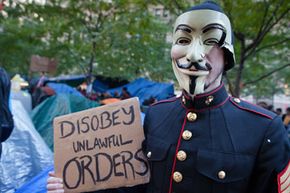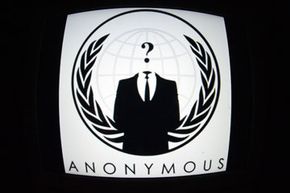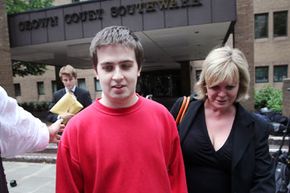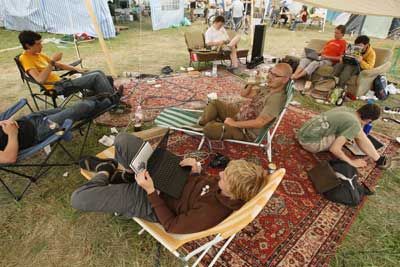Some organizations use the power of the Internet for good; others, for evil. Some leverage their digital power in full view of the world, legally (or just shamelessly) staking claims to online territories. Others are Anonymous.
Anonymous is an amorphous group of computer-savvy people who sometimes work toward a common cause as so-called hacktivists. A hacktivist (a combination of the word hacker and activist) is someone who uses tech know-how to protest against censorship or perceived political, legal or societal injustices (among other things). In doing so, a hacktivist hopes to bring attention to a cause and to trigger action that addresses those injustices.
Advertisement
Hacktivists often band together to exact revenge of their own design, and Anonymous is a famous (or infamous) example. The group may choose to deface a popular Web site by replacing graphics and text with their own messages. Or they may initiate DDoS (distributed denial of service) attacks, in which hackers overload computer systems, making sites and networks completely unavailable to anyone.
These tactics often work. For years, Anonymous has succeeded in garnering worldwide attention for specific causes, or other times, just for fun.
Here's just one example: In 2011, Sony sued one of its customers -- George Hotz -- for creating a workaround that allowed PlayStation 3 users to run the Linux operating system. The thing is, Sony had initially advertised Linux capability as a PS3 feature, but backtracked and created a patch to disable Linux operability.
Sony's actions were so outrageous to Anonymous that it sabotaged Sony's PlayStation Network, the company's online multiplayer system. For nearly a month, no one could access the network, and the company's stock price took a major hit.
Was Anonymous in the wrong for punishing Sony? Or were these hackers merely exacting justifiable revenge on a gigantic, litigious company that lashed out at its own customers?
Whichever side you support, Anonymous got exactly what it wanted: headlines. The breathless news stories that follow Anonymous attacks often condemn Anons (shorthand for group members) as cyber-terrorists, evil vigilantes or anarchists. Other publications brand them as saints who fight back against corruption and injustice in the only way they can.
When enough members of Anonymous latch onto a particular crusade, awful and wonderful things happen. Keep reading and you'll see much more about this famed hacktivist group, which trumpets its presence with the apocalyptic slogan: "We are Anonymous. We are legion. We do not forgive. We do not forget. Expect us!"
Advertisement








